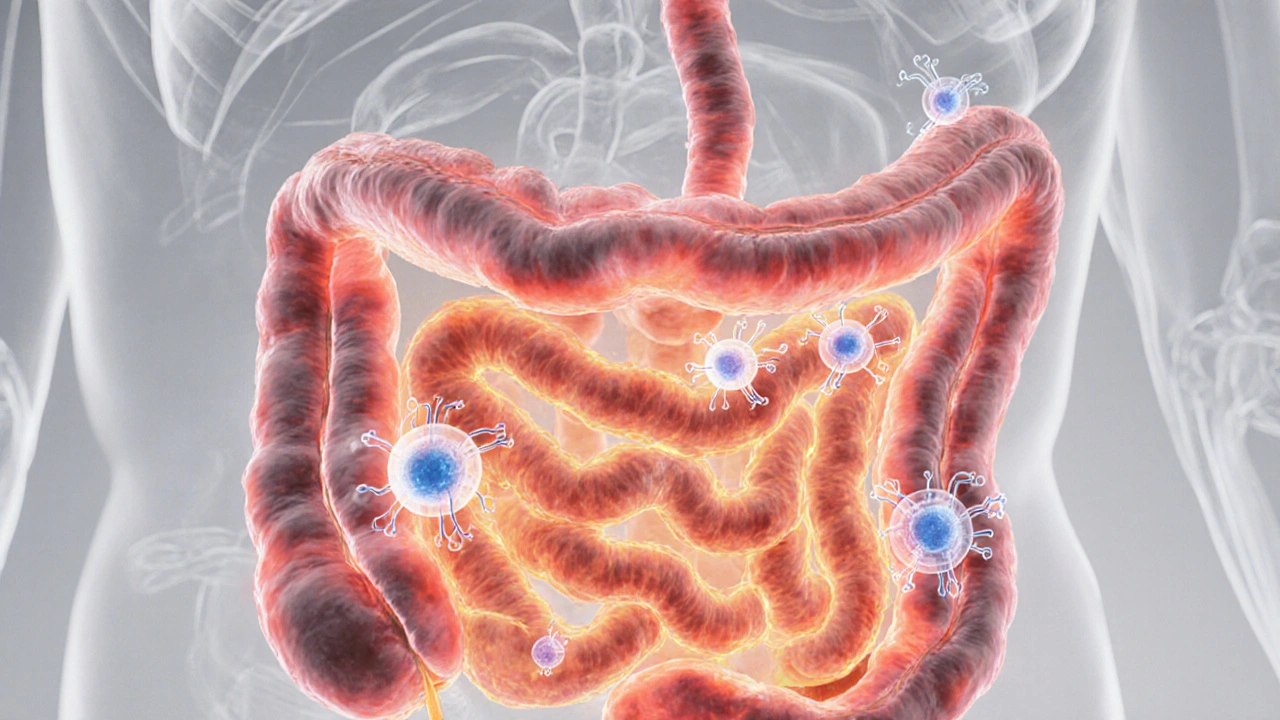Crohn's disease: What you need to know
Living with Crohn's disease can feel like a constant guessing game. You might wonder why you get stomach cramps, why you’re tired, or why you need to run to the bathroom several times a day. The good news is that the condition is well‑studied, and there are clear steps you can take to manage it.
First off, Crohn's disease is a type of inflammatory bowel disease (IBD) that can affect any part of the digestive tract, from the mouth to the anus. Most people notice it in the small intestine or the colon, which is why belly pain and changes in bowel habits are the most common signs. Other red flags include weight loss, fever, and feeling unusually weak.
Key symptoms to watch for
Every person experiences Crohn's a little differently, but here are the symptoms that show up most often:
- Cramping or tenderness in the lower right abdomen
- Diarrhea that may be bloody
- Unexplained weight loss
- Fatigue that doesn’t go away with rest
- Fever during flare‑ups
If you notice a combination of these, especially lasting more than a few weeks, it’s worth talking to a doctor. Blood tests, stool checks, and a colonoscopy can confirm whether it’s Crohn's or something else.
How treatment works
Treatment aims to reduce inflammation, keep symptoms under control, and prevent complications. Doctors usually start with medication, then move to stronger options if needed.
Step‑one meds: Anti‑inflammatory drugs like mesalamine or corticosteroids can calm a flare quickly. They’re often prescribed for a short period because long‑term steroid use can cause other problems.
Immunosuppressants: Drugs such as azathioprine or 6‑mercaptopurine slow down the immune system’s attack on the gut. They take a few weeks to work, but they help keep the disease quiet over the long run.
Biologics: If standard meds don’t do the job, biologic agents like infliximab or adalimumab target specific proteins that cause inflammation. They’re given by injection or infusion and have become a game‑changer for many patients.
In some cases, surgery is needed to remove a damaged section of the intestine. Surgery doesn’t cure Crohn’s, but it can relieve severe pain and stop dangerous complications.
Beyond drugs, lifestyle changes make a big difference.
Everyday tips for living well
Watch your diet: No single food triggers Crohn's for everyone, but many people find relief by limiting high‑fiber foods, spicy dishes, and dairy during flare‑ups. Keep a food diary to spot patterns.
Stay hydrated: Diarrhea can dehydrate you fast, so sip water, electrolytes, or clear broths throughout the day.
Exercise wisely: Light to moderate activity—like walking, yoga, or swimming—helps reduce stress and keeps the gut moving. Avoid high‑impact workouts when you’re in the middle of a flare.
Manage stress: Stress doesn’t cause Crohn’s, but it can worsen symptoms. Simple mindfulness exercises, deep breathing, or talking to a therapist can keep stress in check.
Lastly, keep regular appointments with your gastroenterologist. Frequent check‑ins let you adjust treatment before a flare becomes severe.
Crohn's disease is a lifelong condition, but with the right meds, diet tweaks, and support, you can lead a full, active life. Remember, every person’s journey is unique—don’t be afraid to ask questions and try different strategies until you find what works best for you.

Crohn's Disease Daily Management: Practical Tips for a Better Life
Learn practical, daily‑life tips for managing Crohn's disease, covering diet, medication, symptom tracking, and mental‑health strategies for better living.
